Today’s Daily Concept isn’t about an idea.
It’s about a towering figure in American history whose name deserves to be far better known:
Paul Robeson.
Before Malcolm X and Martin Luther King Jr., there was Paul Robeson.
He first became known for his athletic & artistic prowess before becoming one of the leading advocates for racial & economic equality in the U.S. and around the world.
Robeson was a true Renaissance man:
All-American football player 🏈
Columbia-trained lawyer 👨🏿⚖️
acclaimed Shakespearean actor 🎭
world-class singer 🎙️
global activist 🗳️
“Every artist, every scientist, must decide now where he stands… There are no impartial observers.”
— Paul Robeson on the rise of fascism in the 1930s
Who Was Paul Robeson?
Robeson was born in 1898 in New Jersey, the son of a formerly enslaved man who escaped via the Underground Railroad and became a pastor.
Paul earned a scholarship to Rutgers. He was the only Black student at the university, and he would ultimately graduate as valedictorian.
Athlete: When Robeson joined the football team, white players brutalized him in practice to drive him off.
Undeterred, he made the team and became a two-time All-American.
By the late 1910s, “Robeson at Rutgers” was a household name in college sports.
Lawyer: He studied law at Columbia, but left the field after facing open racism at a law firm.
Instead, he turned to acting and singing.
It was in these fields that he was able to express his immense talents freely.
Actor: Robeson rose to fame in stage roles, especially Othello, which set a Broadway record with nearly 300 performances.
He also starred in British and American films, becoming the first Black movie star in the English-speaking world.
While living in London, Robeson connected with future African leaders and began to identify with his Nigerian Igbo heritage.
He later reflected:
“I discovered Africa in London. That discovery... profoundly influenced my life.”
Singer: With his deep bass-baritone and 6’3” stature, Robeson captivated audiences worldwide.
He popularized African-American spirituals among white audiences and had one of the world’s most recognizable voices.
He recorded 66 albums, 195 singles, and performed in dozens of countries around the world.
Activist: Robeson’s political awakening deepened overseas.
In 1929, he encountered Welsh coal miners who had walked from Wales to London as part of a protest march.
He joined them, gave financial support, and later sang at relief concerts in Wales.
“Through my singing and acting and speaking, I want to make freedom ring.
Maybe I can touch people’s hearts better than I can their minds, with the common struggle of the common man.”
Robeson championed oppressed people across the globe, often aligning with left-wing movements.
His visits to the Soviet Union and outspoken politics brought U.S. government scrutiny.
In 1950, his passport was revoked.
In 1956, Robeson testified before the House Un-American Activities Committee and refused to be intimidated with questions about his alleged Communist sympathies:
“Whether I am or not a Communist is irrelevant. The question is whether American citizens... may enjoy their constitutional rights.”
(Bonus: James Earl Jones re-enacts Robeson’s HUAC testimony)
After the hearing, radio stations stopped playing his music.
Though his passport was reinstated in 1958, Robeson spent his final years in solitude.
He died in 1976. Robeson’s son believes that his father was poisoned by U.S. intelligence during a visit to Moscow.
Learn More: The Richness of Robeson
A single newsletter can’t do justice to Robeson’s life — but here are a few ways to dive deeper:
Some of the links throughout the text above provide more information about Robeson’s life and work, but I have four special recommendations for those of you who want to learn more about this great man.
If you’re interested in hearing Paul’s singing voice, check out this short video of him singing for a group of Scottish miners in 1949.
I recommend reading Robeson’s autobiography, Here I Stand. It’s a short, well-written book that gives Robeson’s perspective on his life. I first became familiar with Paul Robeson by reading my grandfather’s paperback copy.
If you want to hear some of the iconic songs Robeson recorded, many of his albums (including the great 1946 album Spirituals) are available on YouTube.
To learn more about his life, watch the 1999 PBS documentary about Robeson entitled “Here I Stand”. It’s nearly two hours long, but I promise that it’s worth it.






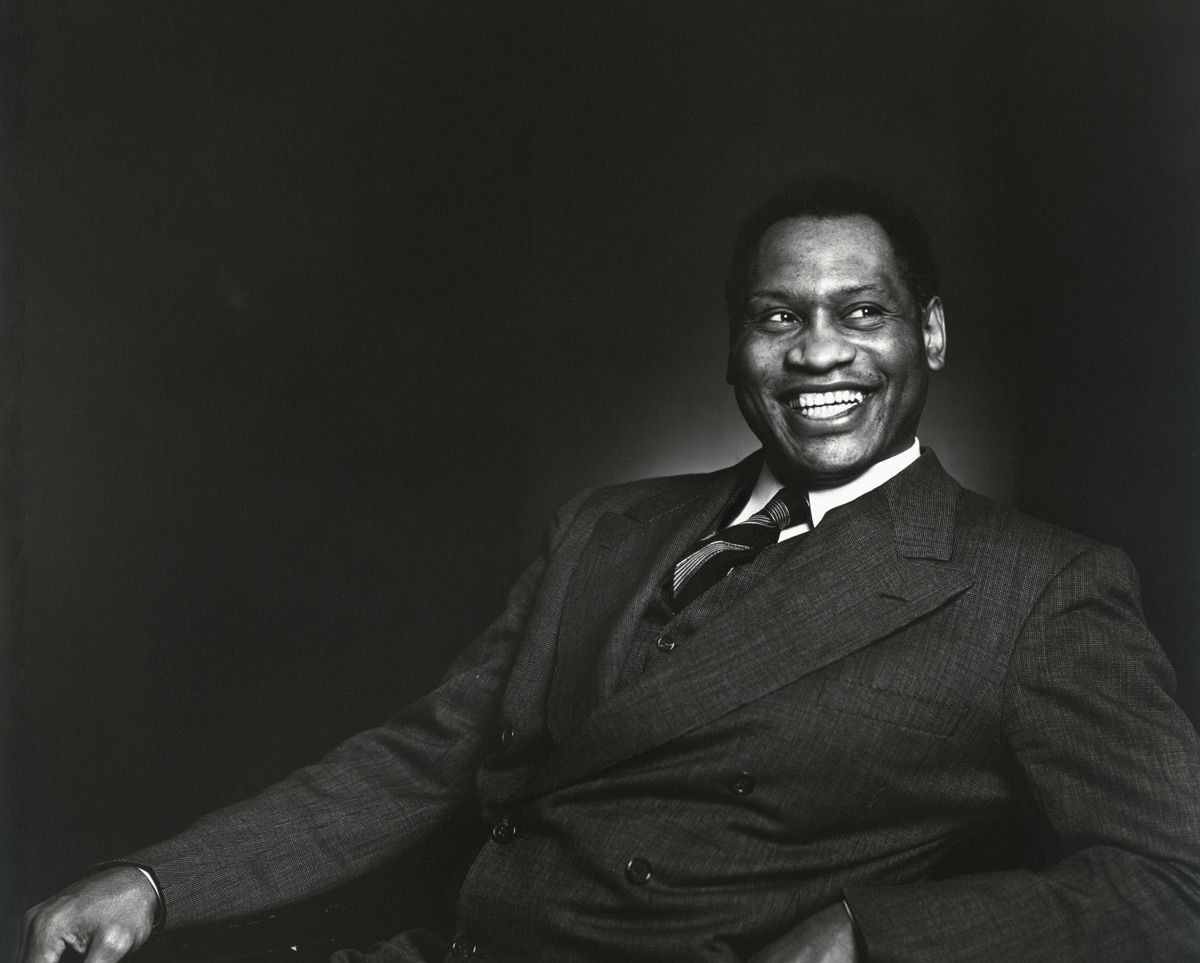
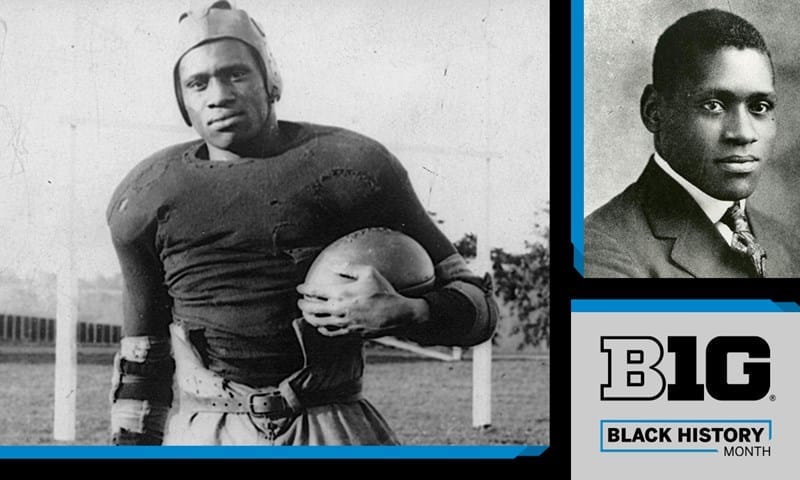


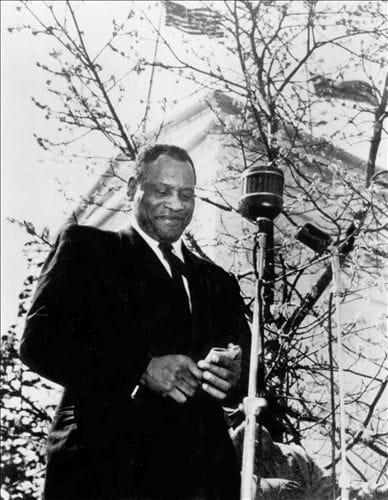
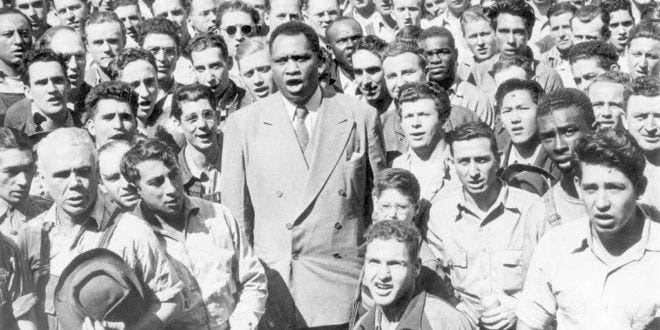
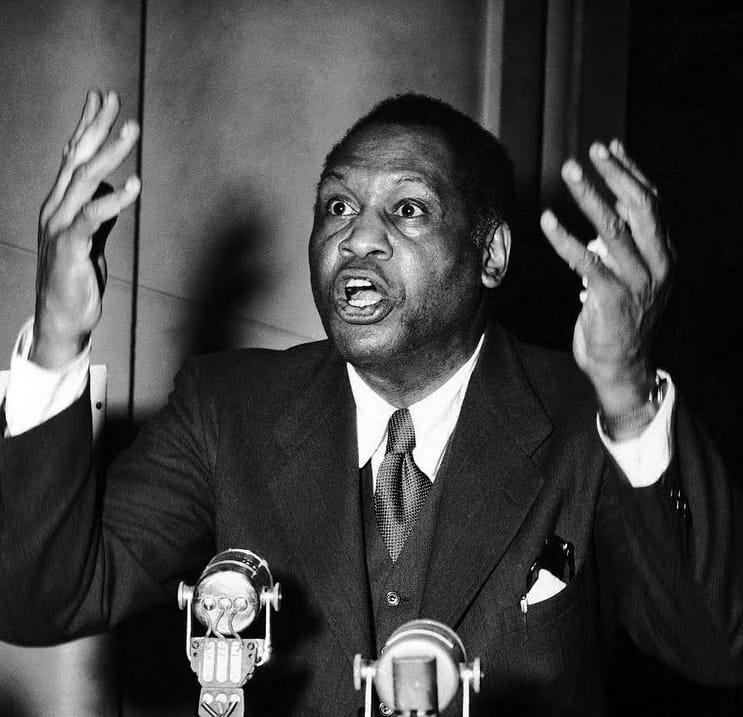

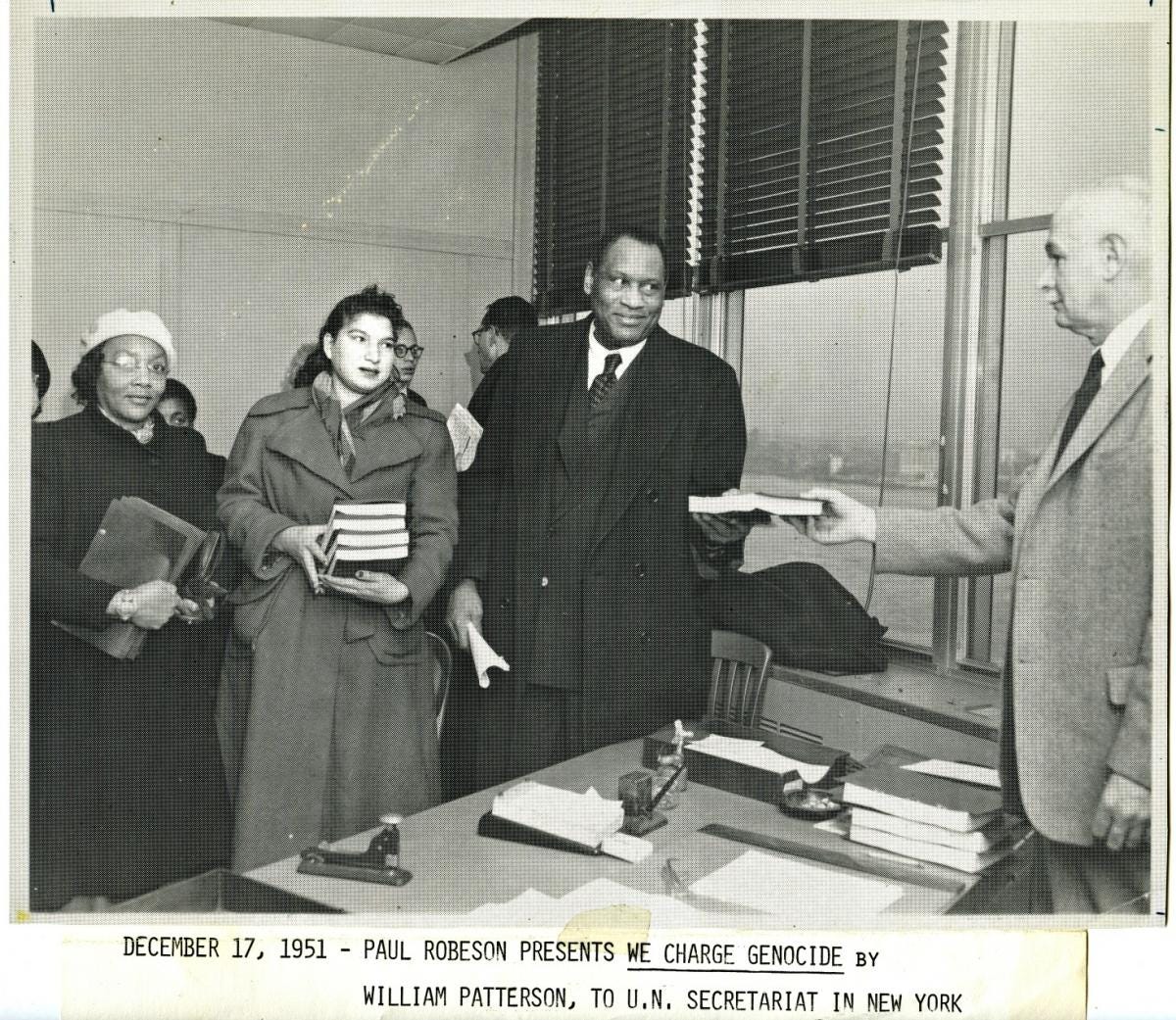
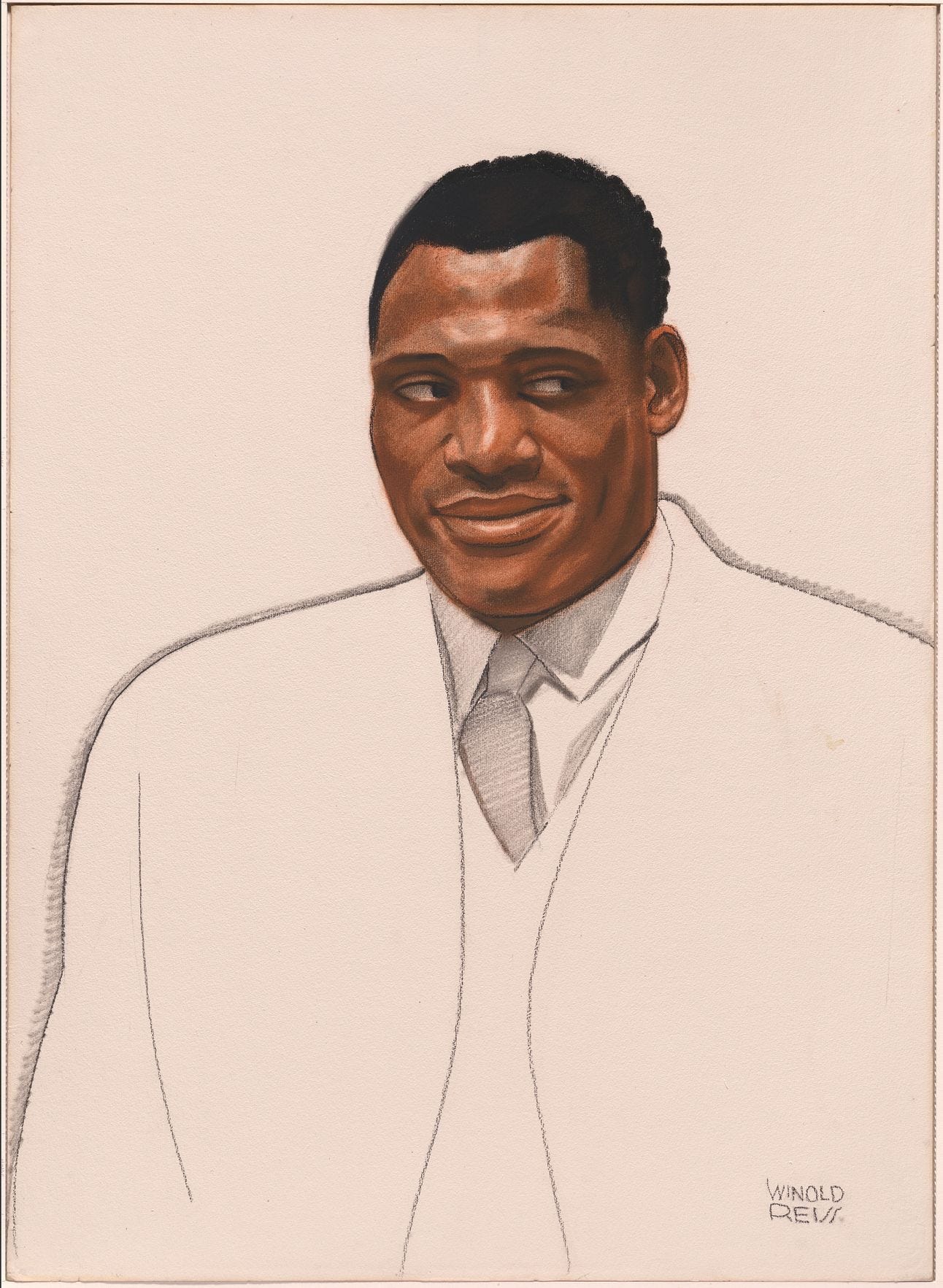
Thank you for all of your research! I knew the name but not the details about Mr. Robeson. I've already added a playlist of him singing to my Spotify. And, a very pertinent topic!
Robeson was my father's hero. I grew up on many stories about him, and his line on Robeson was that he was the most talented American who ever lived.